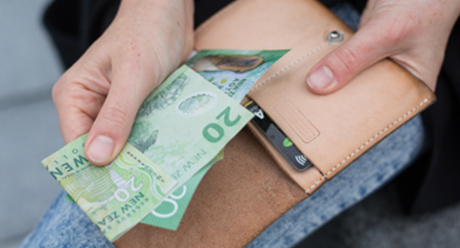

The Fair Trading Act 1986 protects consumers by prohibiting traders from:
No. The rules in the Fair Trading Act apply regardless of what the trader tells you or what’s in the contract. A trader can’t decide that the Act doesn’t apply to them, or ask you to sign a contract saying that the Act doesn’t apply (sometimes called “contracting out”).
However, you and the trader can agree to terms that go above and beyond the protections in the Fair Trading Act. In other words, the protections in the Act are a default – you can’t agree to worse or fewer protections, but you can agree to have more or better protections, and that will be legally enforceable.
Traders can’t behave in a way that is (or is likely to) mislead or deceive. This includes not misleading the public about:
Traders must not make false or misleading representations or statements about goods or services.
A representation can include an impression given in pictures, advertisements, or other promotional material, or a statement made over the phone. A trader can make a false or misleading representation by leaving out information, as well as by stating things that aren’t true – for example, a false or misleading representation that:
Traders must not make claims about goods or services if they don’t have reasonable grounds to believe they are true at the time – even if their claims later turn out to be true. For example, a trader can’t claim that a ‘health drink’ will improve brain function if they currently have no evidence to support this, even if later studies prove it.
This rule doesn’t apply if a reasonable person wouldn’t expect the representation to be actually proven to be true. For example, a reasonable person would not expect that a claim that a beauty product would make you “irresistible to romantic partners” is true.
When deciding whether a trader had reasonable grounds for a representation, a court has to take into account a number of factors, for example:
Unconscionable conduct is behaviour that is unfair, unethical, or takes advantage of someone. The Fair Trading Act prohibits traders from behaving unconscionably – for example, if a trader purposefully takes advantage of a language barrier or unfairly forces someone into a sale.
It is hard to define when exactly conduct will be unconscionable, but the court might look at factors including:
Traders must not engage in unfair practices. Unfair practices include:
Pyramid schemes are illegal. With a “pyramid selling scheme” you pay a fee to join, with the promise of earning money through recruiting more people. Although these schemes usually involve some kind of product or service (like a personal help programme), the main way of earning money is in fact through recruiting new fee-paying members, rather than through selling the product or service.
If you join one of these schemes you’re unlikely to earn your joining fee back again. To put this in perspective, if a pyramid scheme starts with four people, and each person recruits another four people, by the 13th round of recruitment, there would have to be more than 7 billion people involved.
Multi-level marketing companies are similar to pyramid selling schemes, but are legal. With multi-level marketing schemes, salespeople are expected to sell products directly to consumers and are separately incentivised to recruit others. Multi-level marketing companies claim that their members primarily earn money from selling products, rather than primarily via recruitment. If you’re not sure if an opportunity is a pyramid scheme, you should consider requesting financial information about members’ average incomes, and how much of that income is made up of product sales vs. recruitment incentives.
You can read more about the difference between multi-level marketing companies and pyramid selling schemes on the Commerce Commission’s website, here (or go to: www.comcom.govt.nz and search: “Pyramid schemes”).
In general, a “standard form” consumer contract is one that a business has prepared in advance for all its contracts of that type. Using a standard form gives the business all or most of the bargaining power, because there’s no chance to negotiate about the terms of the contract.
The Commerce Commission can apply to the courts for a declaration that a particular term in a standard form consumer contract is unfair. After the court has decided that a term is unfair, no business can include the term in a standard form contract or enforce it.
A business’s standard form term will be “unfair” if it meets all three of the following conditions:
The Fair Trading Act gives some examples of terms that could be unfair. These include terms that allow the business but not the consumer to terminate the contract, or that allow the business but not the consumer to change the contract’s terms, or that penalise the consumer but not the business for breaching the contract.